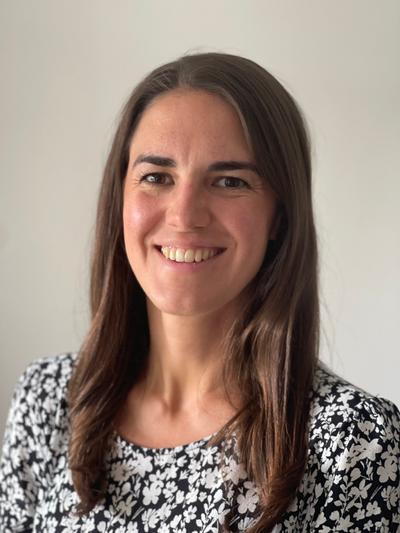Dr Sarah Wheeldon, Haematologist
It is a privilege to be able to act as both clinician and scientist for the same patient, many of whom we come to know over many years, through both highs and the lows. Working as a team allows us to navigate these challenges and provide the best support we can for our patients.

Can you tell us what haematology is?
Haematology is a medical specialty concerned with the study, diagnosis, treatment and prevention of blood and bone marrow disorders. This includes blood cancers, such as leukaemias and lymphomas, as well as non-malignant conditions, such as bleeding disorders and haemoglobinopathies. Haematology also encompasses blood transfusion medicine, laboratory haematology and liaison haematology. Haematologists are usually doctors who have undergone training in internal medicine, followed by specialty training in clinical haematology (usually lasting ~5 years), with Haematology training overseen by the Royal College of Pathologists (RCPath).
Can you tell us about your average working day?
One of the most rewarding aspects of haematology is the variety of each day. I am currently working in the inpatient setting. I spend the morning doing a ward round of the haematology inpatients, most of whom have different types of haematological cancer. We also have patients undergoing stem cell transplants or with acute haematology problems, such as autoimmune haemolysis or haemophilia.
In the afternoons I respond to referrals from other departments. There is a huge overlap between haematology and other specialties, including obstetrics, general medicine and paediatrics. Liaison haematology is a rewarding and interesting part of our work. Scattered throughout the day there is usually some lab work – I might see a patient and then review their blood film or bone marrow biopsy down a microscope, to help determine their diagnosis or see how they are responding to treatment.
On other days I’ll be in our outpatient clinic, seeing patients coming for new or follow up appointments. We also have a day unit, where patients attend to receive chemotherapy and blood transfusions, and where they come to receive assessment and treatment for acute issues, such as neutropenic sepsis.
What kind of work does your job involve?
Haematology involves a mix of inpatient work, outpatient clinics, day unit assessments, procedures (including bone marrow biopsies and intrathecal chemotherapy administration) and laboratory work. This is alongside non-clinical-work such as teaching, management and quality improvement work.
Why did you choose this specialty?
I found the underlying science fascinating at medical school. Then while rotating through different specialties, I loved how much haematology crossed over into all areas of medicine, from bleeding and clotting disorders to anaemias, cancers, and even infectious diseases like malaria. Think about how many full blood counts are done across the hospital every day or how many patients are on blood thinning medications – haematology underpins decision making and management steps throughout the hospital. I really enjoy the whole process of haematology from bench to bedside and the relevance it has to patients across the hospital.
What do you enjoy most about your chosen specialty?
I love the mix of clinical and laboratory work and the variety this provides. There is also the flexibility to tailor your career to your interests, for example through research or education. I recently spent 12 months working 50% in the hospital and 50% as a Transfusion Education Fellow for NHSBT, which was great experience.
The crossover with other specialties allows us to build great relationships with other departments and with the hospital laboratory. The work can be challenging, especially as our patients are complex and many of the conditions we look after are uncommon and can present in unusual ways, but the expertise this allows us to develop is very rewarding. A lot of the treatments we deliver are at the cutting edge of medicine, bringing the latest innovations to the patient right in front of you.
We also work closely with a range of allied health professionals, including nurse practitioners and clinical scientists who are instrumental to our services. Haematology teams are typically very close knit, motivated and friendly, and a pleasure to work amongst.
What do you find most rewarding about the role?
It is very rewarding to be involved at all stages of a patient’s journey. We meet patients and their families when they present with symptoms. We review their blood tests, perform their bone marrow biopsies, and then review their samples down the microscope. As a team we are then able to make a diagnosis and start their treatment, all within one specialty. It is a privilege to be able to act as both clinician and scientist for the same patient, many of whom we come to know over many years, through both highs and the lows. Working as a team allows us to navigate these challenges and provide the best support we can for our patients.
What advice would you give to students looking to enter your field?
Get in touch with your local haematology department and ask if you can spend some time there. There is no substitute for hands on experience. If you are a trainee early in your medical career, then many hospitals will offer ‘taster’ days or weeks where you can join the team and experience the speciality firsthand. The RCPath and BSH websites also have lots of resources for those wishing to learn more. If you are motivated, scientifically minded, value building relationships with your patients and enjoy working across specialities, this could be the specialty for you.
